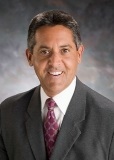Countdown to 2013: Conversion from ICD-9 To
ICD-10
Jennifer Warfield, RN, BSN, HCS-D, COS-C,
PPS PLUS Education Director

As a homecare coding specialist, OASIS
specialist and registered nurse with 30 years
of clinical and management experience, Jennifer
is an informational ally for hundreds of home
health agencies across the country. Well known
as an ICD-9 coding and OASIS expert, she
frequently conducts online and on-site
educational workshops and is a regular guest
speaker at numerous home care conferences
throughout the country.
Developed as a
means of tracking causes of death, the ICD
system is now used by the World Health
Organization (WHO) to collect causes of
morbidity and mortality. The US is behind other
industrialized countries as we still utilize
the ICD-9 system of coding. On Oct 1, 2013, the
US will change from ICD-9 to ICD-10 for medical
diagnoses in home health. This transition will
require major changes for agencies. Join
Jennifer Warfield as she presents an
introduction to the transition. Learn what you
should be doing now, important dates to
remember and ways to start preparing your
staff.

